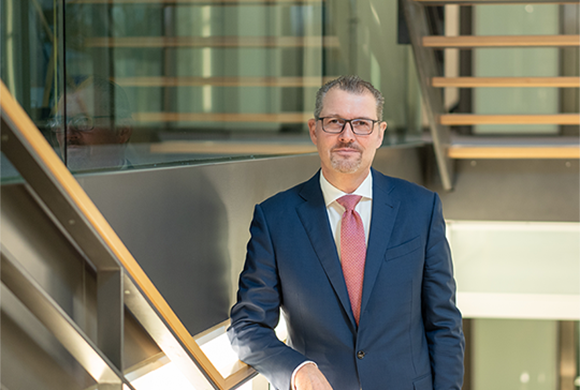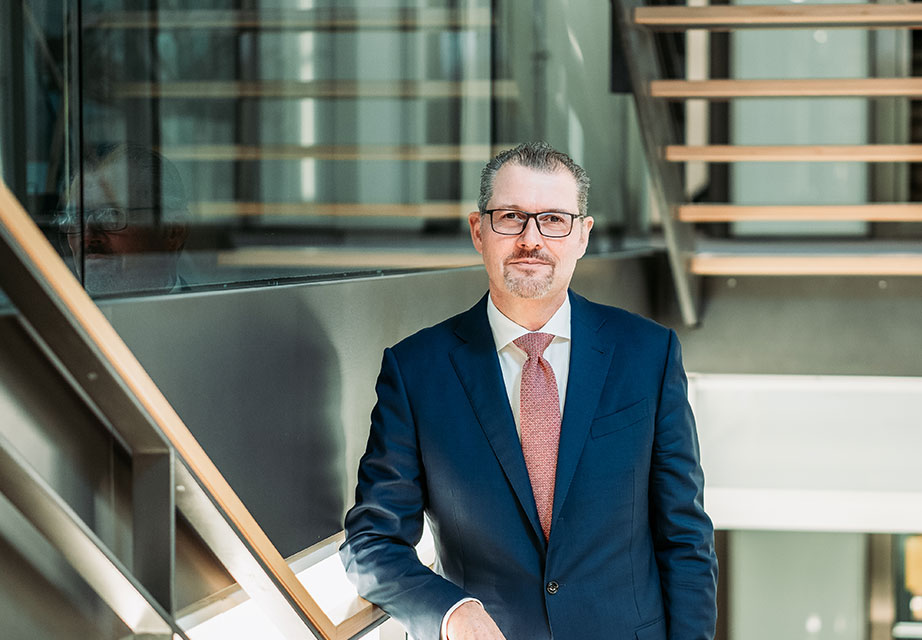- TOPICS
-
-
- Employment and Labour Market
- Labour law and collective bargaining policy
- General applicability
- Industrial action
- Labour & collective bargaining law
- Working time
- Time limit
- Works Constitution
- Bureaucracy reduction
- Data protection
- Protection against discrimination
- Parental leave
- Posting
- Insolvency
- Protection against dismissal
- Minimum wage
- Co-determination
- Mobile work
- Maternity protection
- Pandemic
- Care time
- Self-employment
- Tariff autonomy
- Collective Bargaining Agreement
- Collective bargaining unit
- Tariff policy
- Collective bargaining
- Collective agreement
- Part-time work
- Restructuring
- Holiday law
- Contracts for work
- Whistleblowing
- Temporary work
- Education and vocational training
- Training market
- Professional orientation
- Education policy
- Education 4.0
- Dual education
- dual study
- Permeability
- Early childhood education
- Higher Education Funding
- Lifelong learning
- Teacher Education
- Reorganization of education and training
- STEM Professionals
- Economic education
- Accreditation/Quality assurance
- SCHOOLBUSINESS Germany
- Digitalization and innovation
- Europe and International Affairs
- Social policy and social security
- Old-age poverty
- Work made in Germany
- Occupational safety
- Contribution and registration law
- Company pension scheme
- Shortage of company doctors
- Health insurance
- Long-term care insurance
- Mental health
- Pension insurance
- Riester pension
- Social self-government
- Social insurance
- Accident insurance
- The future of social security
- Taxes & Finances
- Economy & Society
-
-
-
- Newsroom
- The BDA
- Members

Unleashing the economy

Interview with Employer President Dr. Rainer Dulger in the Neue Osnabrücker Zeitung
Osnabrück, 29 January 2021: Unleash the economy! This is the core message of the new president of the employers' association, Rainer Dulger. In an interview with our editorial team, he urges a strategy for the time after Corona. To this end, he calls for, among other things, more flexibility in the world of work, a legal cap on non-wage labour costs, reforms to social security and an offensive to improve education and infrastructure.
Dulger also sharply criticizes manufacturers of Corona vaccines: "Some players do not fulfill the image of an honest businessman in my eyes."
The interview in the wording
Mr. Dulger, you call for talking "about the time after Corona". And you are pushing for an "unleashing offensive". What exactly does that mean?
Up to now, it has been the case that 16 prime ministers, the Chancellor and a few virologists regularly sit down together to decide on the next three weeks. However, politicians must also develop a long-term strategy instead of continuing to take a short-term view. And there is still a lack of adequate consideration of the viewpoint from operational practice. The common question that needs to be answered now is: what happens after Corona?
Assuming the operation is successful...
Let me stick with the figure of speech: When the patient is cured, he still has to go to rehab to regain his full strength. This will also be the case with the economy. Many companies have exhausted their reserves, many are struggling. That's why we need the discussion on a post-Corona strategy now, not in a few weeks. And it is good that Chancellery Minister Helge Braun addressed the issue this week. We need to be prepared when the time comes.
What belongs in the strategy?
What is clear is that the social systems have been put under enormous strain during the crisis. The challenge is similar to that after German reunification. But it would be totally wrong for the government to raise social security contributions - or even taxes - after Corona. Instead we must do everything we can to get the economy humming again. Only then will the social security coffers fill up again. We need to cap non-wage taxes at 40 percent of wages, in a law that cannot be changed. It must be ensured that the limit cannot go crazy again in the years to come. It's not enough to promise something by the end of the legislative session. We need an unleashing offensive for the economy before then.
What other shackles are there to avoid or cast off?
For example, we urgently need to avoid the repeatedly demanded legal right to a home office. The planned Supply Chain Act is and remains problematic. German business stands for transparency and, of course, also for compliance with human rights. However, companies cannot be held liable for compliance with all rights in the entire supply chain. Instead, we need feasible solutions. An unleashing offensive also includes the issue of sustainability: and not only ecologically, but also economically and socially. An economy can only operate sustainably if its public and social systems are consolidated and efficient. And sustainability is above all a question of intergenerational justice. The budget and social security systems must be sustainable in the long term and not just until the next election date.
What are you thinking about?
My generation has a responsibility to work longer where it can and where it is possible. There is no alternative but for the costs arising from the ageing of society to be spread across the generations - because that is the only way to maintain long-term confidence in the state pension. On the subject of education, we must finally wake up from hibernation. Education is the battleground of the future! Our children are the brains of tomorrow. We also need high-speed digitalisation and infrastructure development. This involves transport - roads, railways and waterways - the expansion of electricity grids and high-performance data networks, including in rural areas. There, too, businesses must be internationally competitive. We must create the future now! Agenda 2020 was yesterday. Society 5.0 is today.
Agenda 2010 is no longer enough, you said. What do you mean by that: More flexibility in the labour market?
Yes, Germany needs to be made fit again as a business location. We urgently need more flexibility in the world of work. We are seeing just how important this is in the crisis. There is a saying that a tree with strong roots can be blown over, but a tree that bends flexibly in the wind will hardly be blown over by the wind. That is why flexibility is needed in crises - and also after crises. Flexibility is the new security. So what we need is more willingness to face change and to develop ourselves further!
Meaning?
Quite simply, we need to move away from a rigid time clock mentality, away from rigid working time laws that date back to the days of faxes and telephone dials. People today want to work flexibly. Everyone should be able to arrange their work themselves, as best they can - and in consultation with their employer.
So detailed rules are not needed?
We have a European Working Time Directive, which regulates weekly working time. Everything else should be regulated by the employees themselves with the company. In industry, the social partnership already works extremely well. We always find solutions here. However, all the sectors where things are really not looking good at the moment - for example, retail, services and exhibition stand builders - must now be able to start again as flexibly as possible.
Once again, back to the money. They warn against higher taxes. At the same time, however, they want to stick to the debt brake. How do we then pay for the required investments? And how do we safeguard the social system?
It is true: we have now emptied our coffers, we have run up debts. The economy has been brought very much to its knees in some cases. And that is why we now have to get back on our feet somehow. For us to go from around 180 billion euros in debt in one year to zero debt next year is not a realistic scenario. The recovery phase will probably take more time. Helge Braun, the head of the chancellor's office, has put forward a degressive course for discussion. This proposal is worth discussing. However, I am not of the opinion that something like this always has to be linked to constitutional changes. The Council of Experts has also proposed something like this.
One of the biggest spending items in the federal budget is pension insurance. Do you also want to limit tax subsidies for pensions?
Constantly rising tax subsidies are definitely not the solution. We need reforms to stabilise the finances. We have to be honest about that. We need to raise the retirement age further in the long term. There is no way around that. After all, if the baby boomer cohorts with the highest birth rates now gradually retire, we will have many more recipients of benefits. We must not close our eyes to demographic change. I want my children to have an adequate pension and at the same time I want our social security systems to be sustainable.
Digitization, new work platforms and growing climate protection requirements pose major challenges for large parts of the economy. How do you assess the impact on the labor market?
I see challenges. There are so many new technologies that we need to invest in. But at the same time, I also see enormous opportunities. Because we are a high-tech country, we are a successful industrial nation. If anyone can make this shift towards electric mobility, towards hydrogen technology and the development of digital infrastructure and the widespread use of artificial intelligence, it's us. That's where the jobs of the future are.
How important is education in this context?
The nation that educates its young generation very well and pragmatically introduces them to the technologies of the future will be successful. Education is the real social issue of tomorrow Anyone who reduces educational opportunities now is sinning against the future. The current crisis has shown us where we stand and that we have a lot of catching up to do. We also need to improve technically. It must be technically possible for both children and parents to have such good Internet access that they can learn or work from home. That must be the future.
Right now there is a lot of excitement about Corona vaccinations? Are we following the right strategy?
We need more trust among the population on the subject of vaccination. The state must create more trust here by providing much better information. It must be clearly communicated what vaccinations do. For example, five minutes could be reserved for this purpose before the evening news on television and information could be provided about how important it is to be vaccinated. It would also be a confidence-boosting signal if, for example, the German Chancellor or President were to be publicly vaccinated. This is not about someone gaining an advantage, but about the big picture and being a role model. And it is also a fact that we will only overcome this crisis if we consistently vaccinate.
However, there is currently a shortage of vaccines. In addition, there is a threat of delays in deliveries...
The manufacturers of the vaccines have not kept many promises. Pressure must be brought to bear on this. In my view, some of the players do not live up to the image of an honest businessman.
In Lower Saxony, the state government has drawn up a precise Corona crisis plan. Depending on the level of infection, there are six levels of restrictions or relaxations. A model for other federal states or even for the federal government?
Yes, it is important for us to know where we stand and when there can be relaxations; this must be closely linked to the incidence of infection. Of course, we all hope - especially the many businesses that have to fear for their existence - that we will get out of this pandemic as quickly as possible. But one thing is clear: adapting our vaccination strategy and increasing the speed of vaccination is a key competitive advantage. We need to do better in this area - also on a national level.
Again and again we hear the criticism that people have to put up with enormous restrictions in their private lives, whereas in the economy business continues undisturbed in many cases. This is unjust...
It would be absolutely absurd to completely shut down the economy so that the burdens are then supposedly better distributed. This state can only function if the economy continues to run. If trade and the restaurant trade are already closed, then at least industry and important service sectors must keep humming so that the social security funds continue to receive income. The importance of this is being demonstrated right now. The social security funds are making a major contribution to overcoming this crisis.






